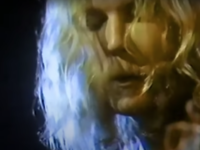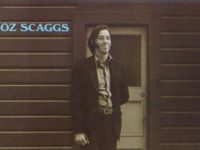For those who don’t know much about Duane Allman beyond the Allman Brothers’ At Fillmore East and Derek and the Dominos’ Layla and Other Assorted Love Songs, this ambitious seven-disc, 129-song set is a revelation.
Hurtling along with the same restless, furiously creative impetus as its subject, Skydog: The Duane Allman Retrospective moves with a sometimes blinding speed through his tragically short but incredibly varied career — from garage and proto-Allmans amalgams like the Escorts, the Allman Joys and Hour Glass to an eye-popping collection of sideman gigs to, yes, his rightly famous contributions to classic-rock history on Fillmore and Layla.
Skydog, titled after his nickname and due March 19, 2013 from Rounder Records, begins with some of Allman’s earliest recordings — none of them so much as essential as deeply fascinating in the sense that the young guitarist was already at work melding guitar music, country and R&B into something that would one day be dubbed Southern rock.
A failed attempt at a big label deal with the band Hour Glass, in fact, foundered when Duane and his brother Gregg tried to push the group deeper into these experimental waters. Duane Allman was left to focus for a while on sessions work, and he gave the role his full attention, honing his skills for the as-yet unknown looming opportunities with his brother and with Clapton.
Along the way, Allman finally began to realize his unique slide sound (delightfully lyrical, devastatingly sad, scaldingly redemptive) on sides for Wilson Pickett, Aretha Franklin, King Curtis, Clarence Carter, Otis Rush, and others — all included on this set, like a roadmap toward genius. By the time the Allman Brothers Band finally coalesced, Duane’s sense of proportion and style had reached its zenith.
He emerged, in the popular consciousness at least, of a piece — like a lightning strike on a clear blue day. But, as Skydog makes abundantly clear, Allman’s craft was something he worked at, sanded on and shaped. Allman played like he lived, with an urgent compulsion.
Whether he had some sense of what lay ahead — Allman would die in a 1971 motorcycle crash, even as At Fillmore East and Layla were gaining stature as modern masterpieces — we’ll never know. There is some sense, however, of thankfulness for that restless ambition as these seven discs turn. Duane Allman didn’t live long, but he gave this life, and his music, every single thing he had.
- How Deep Cuts on ‘Music From Big Pink’ Underscore the Band’s Triumph - July 31, 2023
- How ‘Islands’ Signaled the Sad End of the Band’s Five-Man Edition - March 15, 2022
- The Band’s ‘Christmas Must Be Tonight’ Remains an Unjustly Overlooked Holiday Classic - December 25, 2016




